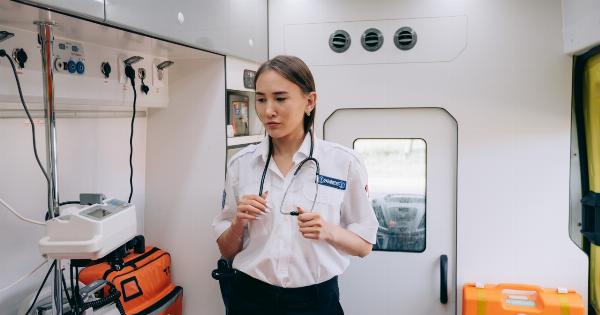Donating blood is a noble gesture of helping others. The process involves voluntarily donating blood to hospitals that need it for transfusions.
The blood is used to save the lives of patients who require immediate transfusions due to illnesses, surgeries, or injuries. However, some people often question whether it is safe to donate blood if they have tattoos. This article seeks to answer this question and provide insights into the safety of donating blood with tattoos.
What is a tattoo?
A tattoo is a form of body art that involves inserting ink into the skin to create a design or pattern. Tattooing has been in existence for centuries and has evolved over the years, with people opting for intricate designs, colors, and different styles.
Tattoos are a permanent form of body modification and are often a reflection of a person’s personality, beliefs, or individuality.
The process of getting a tattoo
Getting a tattoo involves puncturing the skin with an electric needle that injects ink into the dermis layer of the skin. The process is relatively safe if done by a professional tattoo artist who follows proper sterilization techniques.
The artist uses sterilized needles, ink, and gloves to minimize the risk of infections or other complications. However, some people may get infections or other complications during the healing process, especially if they do not follow the recommended aftercare procedures.
Why people with tattoos may be excluded from donating blood
Although getting a tattoo is relatively safe, it does carry some risks of infections that may affect the quality of the blood.
The American Red Cross, for instance, has guidelines that may exclude people with tattoos from donating blood under certain conditions. The organization requires that a person waits for at least 12 months before donating blood if they have received a tattoo in an unregulated setting, such as a tattoo parlor that does not follow OSHA Bloodborne Pathogen Standards.
What are OSHA Bloodborne Pathogen Standards?
The Occupational Safety and Health Administration (OSHA) Bloodborne Pathogen Standards are a set of regulations aimed at protecting workers from exposure to blood and other potentially infectious materials.
The standards require employers to develop and implement a program that identifies and reduces the risk of exposure to bloodborne pathogens. Tattoo parlors that follow these standards use proper sterilization techniques that minimize the risk of infections.
Such procedures include using single-use needles, gloves, and other sterile equipment that protect both the client and the tattoo artist.
The risks associated with tattooing
Although getting a tattoo is a relatively safe procedure, it carries some risks that may affect the quality of the blood. Some of the risks include:.
- Allergic reactions to tattoo ink – some people may develop allergic reactions to the ink used in tattoos. The reactions may cause skin irritations, rashes, or life-threatening reactions that may affect the quality of the blood.
- Infections – tattooing involves puncturing the skin, which may increase the risk of infections. The infections may include bacterial or viral infections that may affect the quality of the blood.
- Hepatitis B and C – hepatitis B and C are bloodborne infections that may be passed from one person to another through contaminated blood. Tattooing with contaminated needles may increase the risk of transmitting these infections.
Conclusion
In conclusion, donating blood is a safe procedure that saves lives. Although people with tattoos may be excluded from donating blood under certain conditions, it is essential to understand that the exclusion is not meant to discriminate against them.
Instead, it is to safeguard the quality of the blood and protect both the donor and the recipient from infections or other complications.






























